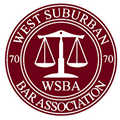9405 Bormet Drive, Suite 7, Mokena, IL 60448
Mokena | 815-727-6144
DuPage County | 630-852-9700 Oak Park | 708-848-3159
Contact Our Firm
The use of the Internet or this form for communication with the firm or any individual member of the firm does not establish an attorney-client relationship. Confidential or time-sensitive information should not be sent through this form.
I have read and understand the Disclaimer and Privacy Policy.

Mokena, IL Order of Protection Attorney

Divorce Lawyers Representing Domestic Abuse Victims in Orland Park and New Lenox
A breakup often involves many strong emotions, and during a divorce, conflict between spouses is likely. These disagreements can become heated and even violent, causing a person to fear for their or their children's safety. If your divorce case involves domestic violence or domestic abuse, you should understand your options for obtaining an order of protection.
The attorneys of Wakenight & Associates, P.C. have over 95 years of combined family law experience, and we have assisted many clients in hostile divorce cases. We understand the legal issues involved when your family's safety is threatened, and we can help you meet the requirements for obtaining the legal protection you need.
Orders of Protection in Illinois
Illinois law allows anyone who has been the victim of abuse by a family member to obtain an order of protection, which is often referred to as a restraining order. A petition for an emergency order of protection can be filed in cases when there is an immediate danger, and if a judge decides to grant this request, the order will typically be in effect for 21 days. If necessary, an interim order of protection can be issued that will remain in effect for up to 30 days until a hearing can be held to determine whether further protection is necessary. Following a hearing in which the petitioner and respondent may testify before the judge, a plenary order of protection may be issued, and it can remain in effect for up to two years.
An order of protection can provide you with a number of remedies intended to protect your safety. These remedies include:
- Prohibiting your ex-spouse from committing any further acts of abuse or harassment.
- Granting you exclusive possession of your marital home or other marital property. Your spouse may also be prohibited from taking, concealing, transferring, or selling marital funds or other assets.
- Requiring your ex to stay away from you and your children, including prohibiting them from entering your home, your workplace, your children's school, or any other place where you are present.
- Requiring your spouse to undergo counseling, including treatment for mental illness or substance abuse.
- Granting you custody of your children and, if necessary, placing restrictions on the other parent's parenting time, such as requiring supervision to be present when they are with your children.
- Ordering your former partner to pay you child support or spousal maintenance.
- Requiring your ex to repay you for any losses you have experienced, such as the costs of medical treatment for injuries they have caused, lost income if you were unable to work, repairs or replacement of any property they have damaged, moving expenses, and attorney's fees.
- Prohibiting your ex-spouse from possessing any firearms.
Defending Against an Order of Protection
Orders of protection are essential for protecting the victims of domestic violence, abuse, or harassment. However, if your spouse has obtained an order of protection against you, you may not understand their reasons for doing so or how you should respond.
First of all, it is essential to follow the requirements of the order, even if you believe that you are not a danger to your spouse or children. Violating an order of protection is a criminal offense that can lead to harsh punishments. While the order is in effect, you will not be able to contact the family members named in the order by phone, email, text, or sending messages through a third party. You may also be prohibited from entering your home or being anywhere near your spouse or children.
It is essential to be represented by an attorney at the order of protection hearing. Your lawyer will help you understand your best options for defense, including providing evidence or witness testimony that demonstrates that any alleged acts of abuse did not occur and that you are not a danger to your family members.
Contact a Will County Family Law Attorney
You and your children deserve to be free from danger. If you are the victim of an abusive ex, you may not know where to turn, and you might believe that you have no options for escaping from your situation. In an emergency, you need an experienced legal advocate on your side to ensure that you are able to receive the protection you need. At Wakenight & Associates, P.C., our compassionate attorneys can provide you with the representation you need in a petition or hearing for an order of protection.
Contact our office today by calling 815-727-6144 to schedule a complimentary consultation. We provide legal help for families in Mokena, Orland Park, New Lenox, Tinley Park, Oak Forest, Frankfort, Orland Hills, Lockport, Homer Glen, and Joliet.























